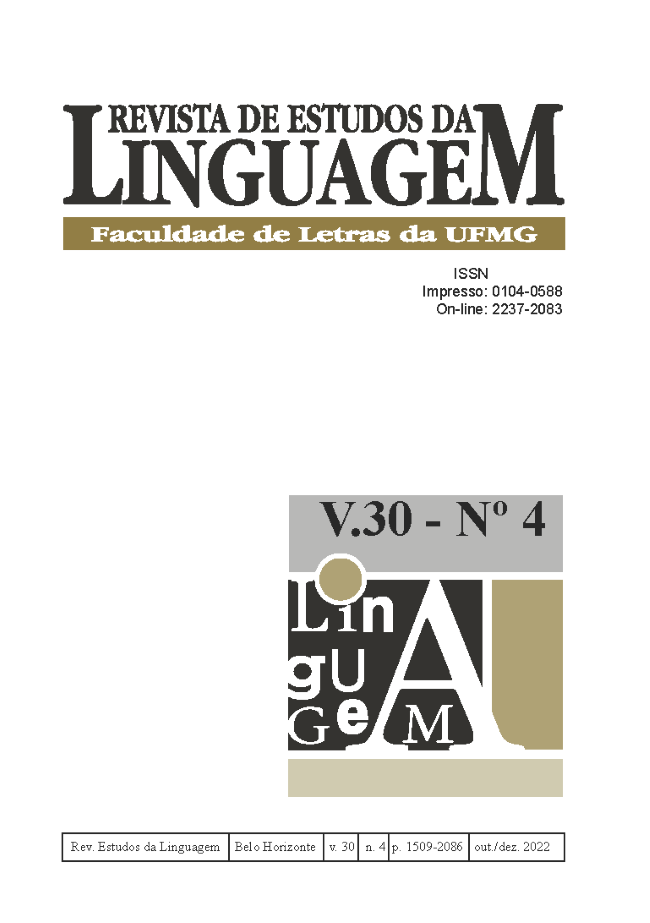Um estudo diacrônico sobre a polaridade negativa no sintagma nominal
o caso do indefinido “algum” naformação do IPN [N + algum]
DOI:
https://doi.org/10.17851/2237-2083.30.4.1752-1786Palavras-chave:
sintagma nominal, indefinido “algum”, polaridade negativaResumo
O presente artigo trata da posposição do indefinido “algum” em relação ao nome substantivo para instanciar a polaridade negativa no sintagma nominal na diacronia da língua portuguesa, buscando compreender: (i) a natureza da estrutura [N+algum] em textos portugueses do século XVI, XVII, XVIII e XIX, e em textos brasileiros do século XIX; e (ii) o processo de gramaticalização da estrutura como um Item de polaridade Negativa (IPN) na história da língua. Verificou-se que a estrutura [N+algum], com inversão, nos séculos XVI e XVII, Português Clássico (PCL), podia ser usada com valor não negativo e que outros elementos podiam ocorrer no interior do sintagma nominal, inclusive com a possibilidade da flexão e não adjacência entre o nome e o indefinido. Tais fatos corroboraram a hipótese de que no PCL a estrutura [N+algum] não estava gramaticalizada como um IPN e o valor negativo era valorado pela presença de um operador de negação sentencial, preposição ou conjunção negativa em domínio sintático superior. Conclui-se que o indefinido no PCL realiza o núcleo da categoria determinante (D) mesmo nas estruturas com inversão, sendo estas derivadas do movimento da parte lexical do sintagma à posição de especificador do sintagma determinante (DP, do inglês Determiner Phrase) fato que contempla as propriedades de categoria D de “algum” no PCL.





